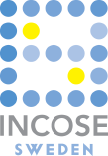Seminarier och möten
Aktiviteten kunde inte hittas
Det kan t.ex. bero på att den raderats, ligger utanför nuvarande period eller att länken är bruten.
Det kan t.ex. bero på att den raderats, ligger utanför nuvarande period eller att länken är bruten.


